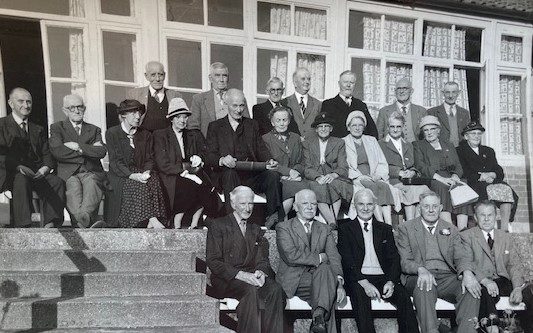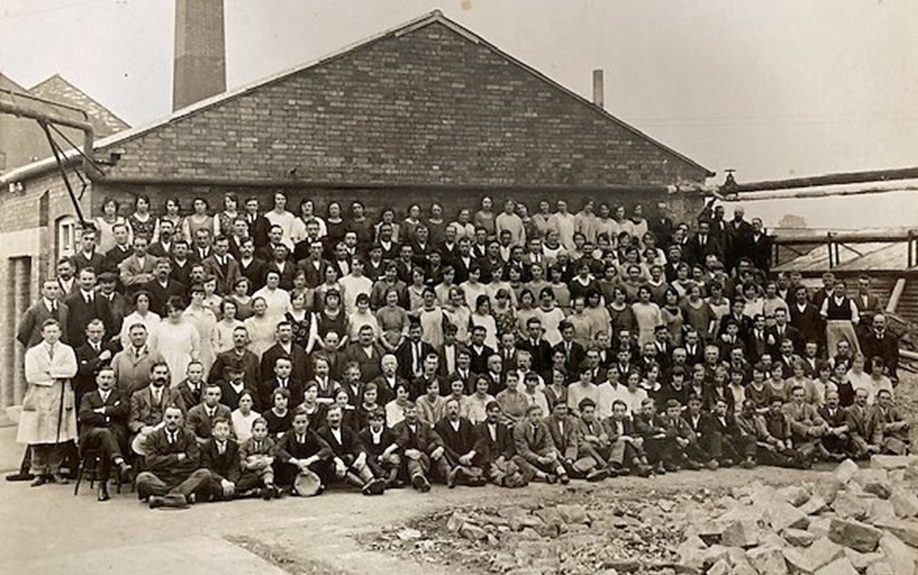In the early days it was very good, because everybody had their own job to do and everybody seemed to be happy, and you’d have a bit of a chat, between people, you know.
[Roger, Morlands]
I remember no one as young as me in the room, but we got on very well. We’d go to lunch together and we’d play cribbage at the lunch table.
[Rosa, Morlands]
Ups and downs we had ups and downs. We had shortages and what have you: the stuff didn’t come, the orders weren’t there, all sorts of things happened. But in the main it was lovely work. Lovely.
[Terry, Baily’s]

Photo: Alan Hooper
The tea trolley came around – because we were new, we didn’t know and we went up first and nobody spoke to us for two days because there was a certain hierarchy of people who had been there the longest or had some other sort of kudos. There was a pecking order that we didn’t know about. But we very quickly learnt – it’s hard to imagine now. We sat back down at our benches and there was a definite atmosphere – we’d crossed the line, that we didn’t even know was there! And then certain people went up, people who had been there the longest or the oldest or something and then we had to take our place and come last the next day. We didn’t, really have a clue but that’s just the way it was.
[Tim, Morlands]
The old sort of jobs – cutting hedges and things – were being mechanised. Going into the factory was a golden opportunity for a lot of people and the money was really good.
[Tim, Morlands]

Photo: Sally Hill and Ann Morgan
The secretaries always thought they were one better than everybody else – because they could do short-hand typing!
[Julia, Morlands]
It was a wonderful place to work, everybody was family and they’re still family now.
[Wendy F, Morlands]
There was only about ten of us in that section. But it was a very nice small unit, they were all very friendly, it was just a lovely, lovely job.
[Wendy M, Morlands]
The whole thing was really, really buzzing. It was a hive of industry – incredible really.
[Tim, Morlands]

